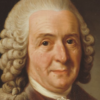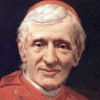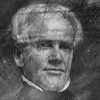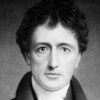I have come to the frightening conclusion that I am the decisive element in the classroom. It is my personal approach that creates the climate. It is my daily mood that makes the weather. As a teacher, I possess a tremendous power to make a child’s life miserable or joyous. I can be a tool of torture or an instrument of inspiration. I can humiliate or humor, hurt or heal. In all situations, it is my response that decides whether a crisis will be escalated or de-escalated, a child humanized or de-humanized.
Haim Ginott (1922-1973) Israeli-American school teacher, child psychologist, psychotherapist [b. Haim Ginzburg]
Teacher and Child, Preface (1972)
(Source)
Quoting his writing as a young teacher.
Quotations about:
student
Note not all quotations have been tagged, so Search may find additional quotes on this topic.
Just as eating contrary to the inclination is injurious to the health, study without desire spoils the memory, and it retains nothing that it takes in.
Leonardo da Vinci (1452-1519) Italian artist, engineer, scientist, polymath
MS. 2038, Bib. Nat. 34 r. [tr. McCurdy (1908)]
(Source)
Why is it that we remember with effort but forget without effort? That we learn with effort but stay ignorant without effort? That we are active with effort, and lazy without effort?
[Quid est enim, quod cum labore meminimus, sine labore obliuiscimur; cum labore discimus, sine labore nescimus; cum labore strenui, sine labore inertes sumus?]Augustine of Hippo (354-430) Christian church father, philosopher, saint [b. Aurelius Augustinus]
City of God [De Civitate Dei], Book 22, ch. 22 (22.22) (AD 412-416) [tr. Green (Loeb) (1972)]
(Source)
(Source (Latin)). Alternate translations:What is our labour to remember things, our labour to learn, and our ignorance without this labour? our agility got by toil, and our dullness if we neglect it?
[tr. Healey (1610)]For why is it that we remember with difficulty, and without difficulty forget? learn with difficulty, and without difficulty remain ignorant? are diligent with difficulty, and without difficulty are indolent?
[tr. Dods (1871)]How difficult it is to remember, how easy to forget; how hard to learn and how easy to be ignorant; how difficult to make an effort and how easy to be lazy.
[tr. Walsh/Honan (1954)]How is it that what we learn with toil we forget with ease? that it is hard to learn, but easy to be in ignorance? That activity goes against the grain, while indolence is second nature?
[tr. Bettenson (1972)]Why is it that we remember with such difficulty, but forget so easily? Why is it that we learn with such difficulty, yet so easily remain ignorant? Why is it that we are vigorous with such difficulty, yet so easily inert?
[tr. Dyson (1998)]
A professor can never better distinguish himself in his work than by encouraging a clever pupil, for the true discoverers are among them, as comets amongst the stars.
Carl Linnaeus (1707-1778) Swedish botanist, zoologist, taxonomist, physician [Carl von Linné, Carolus Linnæus]
Quoted in Theodor Magnus Fries, Linnaeus, ch. 10 “Pupils” (1903) [ed./tr. B. J. Jackson (1923)]
(Source)
You are the sun who heals all clouded sight.
Solving my doubts, you bring me such content
That doubt, no less than knowing, is delight.[O sol che sani ogne vista turbata,
tu mi contenti sì quando tu solvi,
che, non men che saver, dubbiar m’aggrata.]Dante Alighieri (1265-1321) Italian poet
The Divine Comedy [Divina Commedia], Book 1 “Inferno,” Canto 11, l. 91ff (11.91-93) [Dante] (1309) [tr. Kirkpatrick (2006)]
(Source)
Flattering Virgil before he asks another question. (Source (Italian)). Alternate translations:O you, who like the Sun each weaken'd sight
Relieve, and give such pleasure when you clear
My doubts, that I to raise them oft desire.
[tr. Rogers (1782), l. 89ff]Can I repent my doubts! illumin'd Bard,
When thus thy heav'nly words my doubts reward?
[tr. Boyd (1802), st. 14]O Sun! who healest all imperfect sight,
Thou so content’st me, when thou solv’st my doubt,
That ignorance not less than knowledge charms.
[tr. Cary (1814)]O Sun, that healest every troubled sight!
So full content, thou solving, doth ensue,
Glads me no less to doubt, than judge aright.
[tr. Dayman (1843)]O Sun! who healest all troubled vision, thou makest so glad when thou resolvest me, that to doubt is not less grateful than to know.
[tr. Carlyle (1849)]Thou sun, that clearest every clouded sight,
You so content me to dissolve the knot,
To know is scarce so pleasing as to doubt.
[tr. Bannerman (1850)]Oh, sun! thou healer of the troubled sight,
What thou declarest makes me so content,
That as in knowledge I rejoice in doubt.
[tr. Johnston (1867)]O Sun, that healest all distempered vision,
Thou dost content me so, when thou resolvest,
That doubting pleases me no less than knowing!
[tr. Longfellow (1867)]O Sun that healest every troubled sight, so dost thou content me when thou solvest, that doubting gives me no less pleasure than knowing.
[tr. Butler (1885)]O Sun, that healest every troubled sight.
Thou so contentest me when thou mak'st clear
Doubts, that no less than knowledge they delight.
[tr. Minchin (1885)]O Sun that healest every troubled vision, thou dost content me so, when thou explainest, that doubt, not less than knowledge, pleaseth me.
[tr. Norton (1892)]O sun, that bringest healing unto all clouded vision, thou grantest unto me such satisfaction in thine unravelling, that doubting doth delight me.
[tr. Sullivan (1893)]Oh! sun, who makest whole all troubled vision.
Thou dost content me so when thou resolvest
That doubt is joy to me, no less than knowledge.
[tr. Griffith (1908)]O Sun that healest all troubled sight, so dost thou satisfy me with the resolving of my doubts that it is no less grateful to me to question than to know.
[tr. Sinclair (1939)]O Sun, who heal'st all troubled vision, and so
Contentest me where thou doest certify,
That to doubt pleaseth not less than to know ....
[tr. Binyon (1943)]O Sun that healest all dim sight, thou so
Doest charm me in resolving of my doubt,
To be perplexed is pleasant as to know.
[tr. Sayers (1949)]O sun which clears all mists from troubled sight,
such joy attends your rising that I feel
as grateful to the dark as to the light.
[tr. Ciardi (1954)]O sun that heal every troubled vision, you do content me so, when you solve, that questioning, no less than knowing, pleases me.
[tr. Singleton (1970)]O sun that shines to clear a misty vision,
such joy is mine when you resolve my doubts
that doubting pleases me no less than knowing!
[tr. Musa (1971)]O sun that heals all sight that is perplexed,
when I ask you, your answer so contents
that doubting pleases me as much as knowing.
[tr. Mandelbaum (1980)]O sun who clears every obscure perception
You give such satisfaction when you enlighten me
That, not less than knowledge, doubt is agreeable.
[tr. Sisson (1981)]O sun, that makes all troubled vision clear,
You give solutions I am so contented with
That asking, no less than knowing, pleases me.
[tr. Pinsky (1994), l. 87ff]O sun that heals every clouded sight, you content me so when you resolve questions, that doubting is no less pleasurable than knowing.
[tr. Durling (1996)]O Sun, that heals all troubled sight, you make me so content when you explain to me, that to question is as delightful as to know.
[tr. Kline (2002)]O sun, you who heal all troubled sight,
you so content me by resolving doubts
it pleases me no less to question than to know.
[tr. Hollander/Hollander (2007)]O shining sun, healer of troubled vision,
I'm satisfied so well, my mind so settled,
That knowledge pleases me no more than asking questions!
[tr. Raffel (2010)]"Bright sun," I said, you calm these doubts of mine
As you heal any troubled sight. Such ease
You bring me that to question pleases me
Like being answered."
[tr. James (2013)]
In a time of drastic change it is the learners who inherit the future. The learned usually find themselves equipped to live in a world that no longer exists.
Eric Hoffer (1902-1983) American writer, philosopher, longshoreman
Reflections on the Human Condition, ch. 1, § 32 (1973)
(Source)
He [Napoleon III] was what I often think is a dangerous thing for a statesman to be — a student of history, and like most of those who study history, he learned from the mistakes of the past how to make new ones.
A. J. P. Taylor (1906-1990) British historian, journalist, broadcaster [Alan John Percivale Taylor]
“Mistaken Lessons from the Past,” The Listener (6 Jun 1963)
(Source)
A man may hear a thousand lectures, and read a thousand volumes, and be at the end of the process very much where he was, as regards knowledge. Something more than merely admitting it in a negative way into the mind is necessary, if it is to remain there. It must not be passively received, but actually and actively entered into, embraced, mastered. The mind must go half-way to meet what comes to it from without.
John Henry Newman (1801-1890) English prelate, Catholic Cardinal, theologian
The Idea of a University, Lecture 9 “Discipline of Mind,” sec. 4 (1852)
(Source)
One looks back with appreciation to the brilliant teachers, but with gratitude to those who touched our human feelings. The curriculum is so much necessary raw material, but warmth is the vital element for the growing plant and for the soul of the child.
Carl Jung (1875-1961) Swiss psychologist
“The Gifted Child” (1942), The Development of Personality, sec. 250 (1954) [tr. Hull]
(Source)
Translated from "Der Begabte," Psychologie und Erziehung (1946).
A teacher who is attempting to teach without inspiring the pupil with a desire to learn is hammering cold iron.
Horace Mann (1796-1859) American educator
(Attributed)
Quoted in The Eclectic Magazine, Vol. 8 (Jan-Jun 1868), and in The Myrtle, Vol. 24, #40 (30 Jan 1875)
As I left the building, classes were changing and the students were milling about in the halls. They seemed inconceivably young to me. Full of pretense, massively other oriented, ill formed, partial, angry, earnest, resentful, excited, frantic, depressed, hopeful, and scared.













